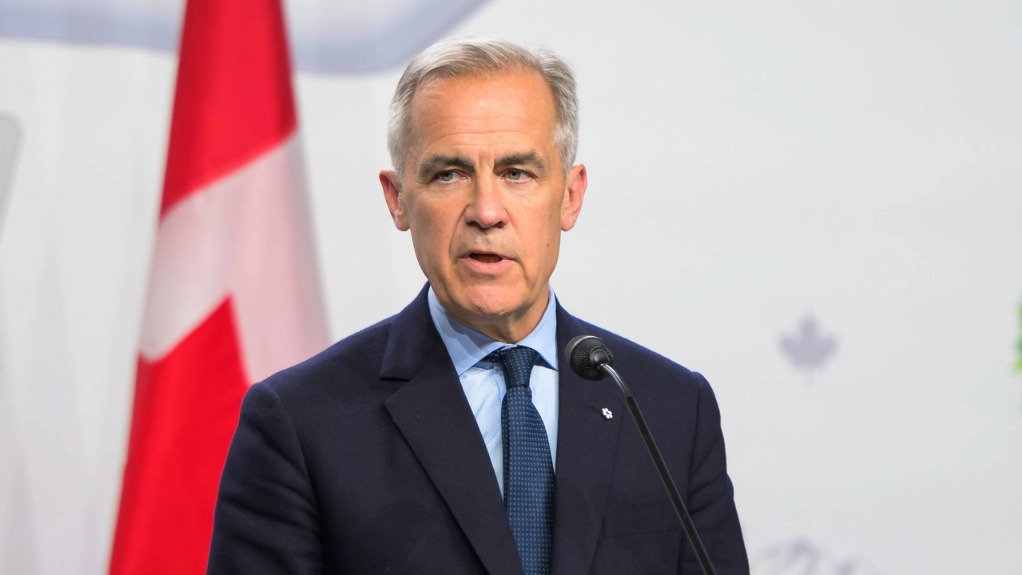Canada approves law to fast-track resource projects, faces Indigenous opposition
TORONTO - Canada's Senate passed a bill to fast-track approval for natural resource and infrastructure projects on Thursday despite opposition from Indigenous and environmental groups who have threatened protests and legal action.
The bill's passage and implementation are a test for Carney, who was elected in April promising to transform Canada's economy in the face of what he repeatedly called a national crisis due to US tariffs.
The Liberal government's proposal speeds up approval of "national interest" projects, potentially including mines and oil pipelines, and eliminates some trade barriers between provinces. It passed the lower chamber last week with some Conservative support and cleared the Senate just before Parliament breaks for the summer.
So-called Henry VIII clauses give Cabinet the power to decide how and whether some laws apply to such "national interest" projects.
The bill had raised the ire of eight environmental and Indigenous leaders Reuters spoke to, and threatens to upend years of work toward reconciliation between Canada's government and its first peoples. Some groups have promised a legal fight over the legislation, while others have pledged demonstrations.
"Prime Minister Carney is likely going to be followed by an Indigenous protest if he continues on this course," said lawyer and former Couchiching First Nation Chief Sara Mainville, whose clients are considering legal action.
In Canada the duty to consult First Nations is a constitutional requirement recognized by courts. Indigenous groups argue fast-tracking project approval sidesteps that obligation and denies them a real say.
"This bill represents a major threat to First Nations rights," Assembly of First Nations National Chief Cindy Woodhouse Nepinak said.
"We won't give up the fight."
Indigenous protesters have opposed projects in the past. In early 2020, protesters shut down key rail lines and roads across Canada for weeks to show solidarity with an Indigenous group in British Columbia that was trying to stop a gas pipeline from being built across its land.
Carney has said the right to consultation is enshrined in the bill, which he has called the core domestic response to US President Donald Trump's tariffs.
Consultation alone is not enough, Mainville said. Accommodation is required - the assurance "that you are going to change something because you've heard concerns."
The law will come into effect when it is signed by Governor General Mary Simon, the personal representative of King Charles, Canada's head of state.
A similar measure, in Ontario, gives that province's Cabinet even broader powers; British Columbia passed an act to fast-track infrastructure projects last month.
Canada is the world's No. 4 oil exporter and a mining powerhouse. The Ontario bill, which became law earlier this month, aims to push mining in the "Ring of Fire" in the province's north. Canada is trying to wean itself from economic dependence on the United States, where it sends some 75% of its exports.
LEGAL CHALLENGES
Meanwhile, some environmental advocates worry projects would be greenlit before their risk has been assessed and will be pursued regardless of risk, said Joshua Ginsberg, director of the Ecojustice Environmental Law Clinic at the University of Ottawa.
Carney has plans to meet with Indigenous leaders this summer. But he sidestepped a question last week as to whether a nation could effectively veto one of these prioritized projects. His office did not respond to request for comment.
Abram Benedict, Ontario regional chief with the Chiefs of Ontario, said there will "definitely" be legal challenges.
"There will be challenges to the legislation itself, the constitutionality of the legislation. There will also be challenges once the bill is operationalized so that projects are started."
Article Enquiry
Email Article
Save Article
Feedback
To advertise email advertising@creamermedia.co.za or click here
Press Office
Announcements
What's On
Subscribe to improve your user experience...
Option 1 (equivalent of R125 a month):
Receive a weekly copy of Creamer Media's Engineering News & Mining Weekly magazine
(print copy for those in South Africa and e-magazine for those outside of South Africa)
Receive daily email newsletters
Access to full search results
Access archive of magazine back copies
Access to Projects in Progress
Access to ONE Research Report of your choice in PDF format
Option 2 (equivalent of R375 a month):
All benefits from Option 1
PLUS
Access to Creamer Media's Research Channel Africa for ALL Research Reports, in PDF format, on various industrial and mining sectors
including Electricity; Water; Energy Transition; Hydrogen; Roads, Rail and Ports; Coal; Gold; Platinum; Battery Metals; etc.
Already a subscriber?
Forgotten your password?
Receive weekly copy of Creamer Media's Engineering News & Mining Weekly magazine (print copy for those in South Africa and e-magazine for those outside of South Africa)
➕
Recieve daily email newsletters
➕
Access to full search results
➕
Access archive of magazine back copies
➕
Access to Projects in Progress
➕
Access to ONE Research Report of your choice in PDF format
RESEARCH CHANNEL AFRICA
R4500 (equivalent of R375 a month)
SUBSCRIBEAll benefits from Option 1
➕
Access to Creamer Media's Research Channel Africa for ALL Research Reports on various industrial and mining sectors, in PDF format, including on:
Electricity
➕
Water
➕
Energy Transition
➕
Hydrogen
➕
Roads, Rail and Ports
➕
Coal
➕
Gold
➕
Platinum
➕
Battery Metals
➕
etc.
Receive all benefits from Option 1 or Option 2 delivered to numerous people at your company
➕
Multiple User names and Passwords for simultaneous log-ins
➕
Intranet integration access to all in your organisation





















